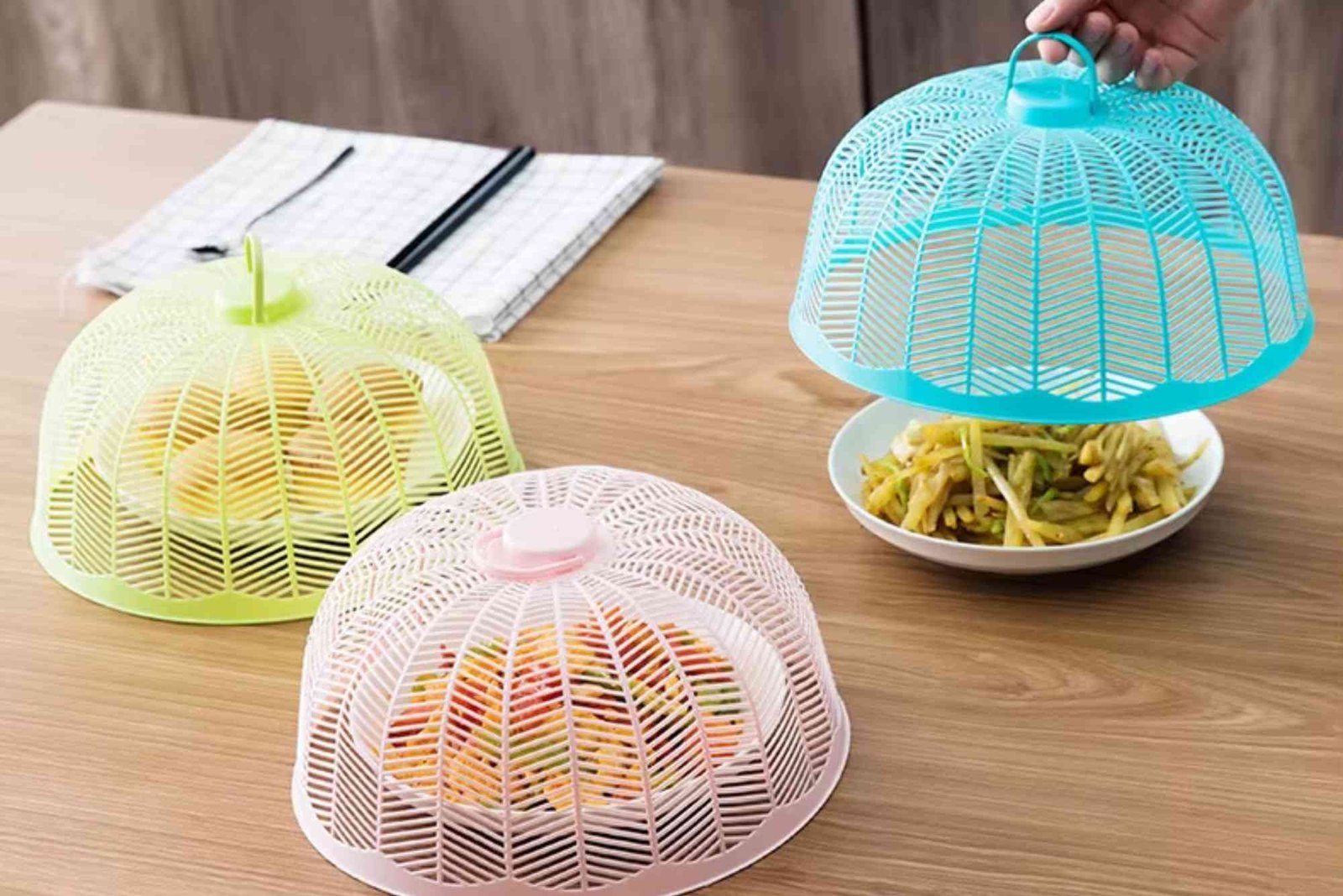Food Cover Plastic: Keeping Your Food Fresh and Safe
In today’s fast-paced world, preserving the freshness of food is more important than ever. Food cover plastics play a crucial role in ensuring that your meals stay fresh, hygienic, and free from contaminants. Whether you’re storing leftovers or preparing food in advance, a food cover plastic offers a practical solution. It’s an essential kitchen item that is widely used in homes, restaurants, and food industries around the world.
Why is Food Cover Plastic Essential?
Food cover plastic serves as a protective barrier between your food and the environment. It helps in keeping your food safe from dust, bacteria, and other contaminants that might cause spoilage. This is especially important when you are storing food at room temperature or in the refrigerator. Without an effective cover, food is more likely to dry out or lose its freshness, leading to waste and unnecessary spending.
Benefits of Using Food Cover Plastic
The main benefit of using food cover plastic is the extended shelf life of food. When sealed properly, these covers lock in moisture and prevent exposure to air, thus preventing the food from drying out or becoming stale. Additionally, food cover plastics help preserve the flavor and nutritional value of your meals, ensuring that each bite is as fresh as the moment it was prepared. These covers also help prevent cross-contamination in the fridge, keeping raw meats and produce separated from other foods.
Another major advantage is convenience. Food cover plastics come in a variety of sizes and designs, making it easier for you to choose the right one for your needs. Whether you’re wrapping a small piece of fruit or covering a large dish, you can find a food cover that fits perfectly. Plus, plastic covers are lightweight, portable, and easy to store, making them ideal for both home and travel use.
Types of Food Cover Plastics
Food cover plastics come in various types, each with its unique features and uses. Some are disposable, while others are reusable, catering to different environmental preferences. Cling film, one of the most commonly used types, is a thin, transparent plastic that sticks to the surface of the food, creating an airtight seal. This is perfect for short-term food storage.
Other options include plastic containers with secure lids, which offer a more durable and reusable alternative. These are ideal for storing bulkier food items or for those who prefer a long-term storage solution. Additionally, silicone food covers are gaining popularity due to their flexibility, non-toxic nature, and ability to withstand high and low temperatures.
How to Use Food Cover Plastic Properly
When using food cover plastic, it’s essential to ensure a tight seal to maximize its benefits. For cling film, make sure the wrap sticks firmly to the surface of the food or container. For reusable plastic covers, ensure the lid is securely fastened to avoid air getting in. Always check for any holes or tears in the cover, as they can compromise its effectiveness.
It’s also important to use food cover plastic properly based on the type of food being stored. For example, when covering hot food, allow it to cool down slightly before wrapping it, as covering it while still steaming can cause condensation inside the cover, leading to sogginess. Additionally, avoid wrapping overly greasy or oily foods, as these can cause the plastic to break down more quickly.
Environmental Impact of Food Cover Plastics
While food cover plastics are undeniably convenient, they come with environmental concerns. Single-use plastics contribute significantly to pollution and waste, with many of them ending up in landfills or the ocean. As a result, many people are turning to eco-friendly alternatives like biodegradable wraps or reusable silicone covers. However, it’s important to note that even plastic alternatives still require careful disposal and management.
To reduce the environmental impact, it’s crucial to choose plastic covers made from recyclable materials and to dispose of them properly. Additionally, reusable plastic containers and covers are an excellent solution to cut down on single-use plastic waste.
Food Cover Plastic in the Food Industry
In the food industry, food cover plastic is a key component of food safety. It’s commonly used in restaurants, catering services, and food packaging to ensure that prepared meals stay safe during transportation and storage. For example, fast-food chains rely on food cover plastics to wrap sandwiches and burgers for take-out orders. Similarly, grocery stores use plastic wraps to secure items like meats and cheeses, extending their shelf life and ensuring hygiene.
The versatility of food cover plastic also makes it ideal for bulk food storage, as it helps preserve the quality and prevent contamination of large quantities of ingredients.
Food cover plastic is an essential tool in maintaining food hygiene and freshness. With a wide range of options available, from cling film to reusable containers, it’s easy to find the right type of cover for your needs. However, it’s also important to consider the environmental impact of plastic usage and make conscious decisions to reduce waste. By understanding how food cover plastic works and how to use it effectively, you can enjoy fresher meals and contribute to a cleaner planet.
FAQs About Food Cover Plastic
What is the best way to store food with plastic covers?
Ensure the cover creates an airtight seal, and use the right size for the container or food item. For hot food, allow it to cool slightly before covering.
Can food cover plastic be reused?
Some food covers, like plastic containers or silicone wraps, are reusable, while cling film is typically single-use. Always check for any damage before reusing plastic.
Is food cover plastic safe to use?
Yes, food cover plastic is generally safe, but make sure you use BPA-free options, especially when storing hot or fatty foods.
Can food cover plastic be recycled?
Some food cover plastics can be recycled, but it’s essential to check the material type and local recycling guidelines before disposal.
Are there eco-friendly alternatives to food cover plastic?
Yes, options like beeswax wraps, silicone covers, and biodegradable wraps are eco-friendly alternatives to traditional plastic.




